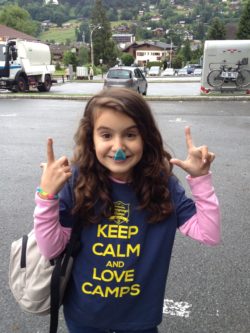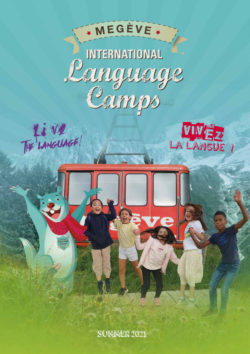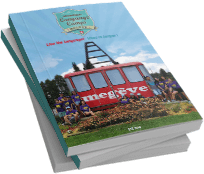Category: EN
Language Summer Camp in Megève: 4 Convincing Reasons to Send Your Child
Introduction
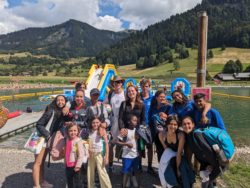
Reason 1: Immersive Language Learning Experience
One of the most effective methods for learning a new language is through immersion, and that’s exactly what our Megève summer camp offers. Immersion in a language occurs when learners are placed in an environment where they must use the new language to communicate for most of their day. This method accelerates language acquisition as it mimics the natural way children learn their mother tongue.
Our camp curriculum is designed by expert linguists and seasoned educators, ensuring that each child receives personalized attention suited to their learning pace. Whether your child is a beginner or looking to enhance their fluency, the diverse linguistic setting at Megève provides an ideal backdrop. From interactive language classes in the morning to practical conversational practice with peers throughout the day, the exposure is continuous and multifaceted.
Further enriching this experience are the stories from former campers who recount their rapid progress and increased confidence in using the new language. Such testimonials underscore the effectiveness of our immersive approach.
 Reason 2: Unique Cultural Exposure
Reason 2: Unique Cultural Exposure
Nestled in the French Alps, Megève is a hub of rich cultural heritage. Our summer camp leverages this unique location to provide children with firsthand experience of French culture. Cultural learning is intertwined with language instruction, with scheduled trips to local museums, historical sites, and participation in traditional festivals and markets.
These activities are not only entertaining but also educational, providing children with context to the language they are learning. This method of cultural immersion ensures that language learning at the Megève camp is not confined to textbooks but enriched with real-world experiences and interactions.
Reason 3: Development of Life-Long Skills
Beyond the linguistic benefits, our french summer camp in Megève is a breeding ground for a variety of life-long skills that are essential in today’s world. Campers develop independence as they navigate new experiences away from home, learn to manage their time and responsibilities, and make decisions in a supportive yet challenging environment.
Social skills are particularly enhanced through daily interactions and group activities. Children learn to communicate across language barriers, work in teams, and build friendships with peers from around the world, fostering a global mindset. Additionally, the camp’s diverse activities encourage adaptability and problem-solving, skills that are valuable in academic and personal settings.
Educators and psychologists support the notion that such immersive environments significantly contribute to overall child development. Engaging in a structured yet flexible schedule allows children to explore their interests in a safe setting, promoting personal growth and self-confidence.
 Reason 4: Fun and Safe Environment
Reason 4: Fun and Safe Environment
While the educational benefits are paramount, the enjoyment of the campers is equally important to us. Megève’s summer camp is designed to be the perfect blend of learning and fun. Our schedule includes a variety of recreational activities such as hiking, swimming, and arts and crafts, ensuring that every child finds something they enjoy. These activities not only serve as a break from learning but also help in applying the language in relaxed settings, making language practice enjoyable and stress-free.
Safety is our top priority. The camp is staffed by professionals who are trained to provide a secure and supportive environment for all children. Comprehensive safety protocols are in place, including 24/7 on-site medical support and regular updates to parents, ensuring peace of mind for families while their children enjoy their summer adventure.
Parents of previous camp attendees frequently express their satisfaction with the secure and nurturing environment at the camp, noting that their children are eager to return year after year. Their testimonials highlight the camp’s success in combining effective learning with a fun and safe summer experience.
Conclusion
Sending your child to our language summer camp in Megève is not just an investment in their language skills, but in their personal growth and future potential. The immersive language learning, coupled with cultural exposure, development of life-long skills, and a fun, safe environment, makes Megève an ideal choice for a summer that’s both enriching and enjoyable. The experiences and skills gained at the camp will serve your child well beyond the summer, laying a foundation for success in whatever path they choose to pursue.
A Summer Camp that foster independence
Unlocking Independence: The Transformative Journey at International Language Camp
At “International Language Camp” in the picturesque town of Megève, nestled in the heart of the French Alps, a remarkable journey of independence awaits young campers. This unique summer camp experience not only offers the opportunity to learn and master languages but also fosters personal growth, self-reliance, and the development of essential life skills.
A Multicultural Melting Pot
One of the standout features of International Language Camp is its diverse and inclusive environment. Children from across the globe come together, creating a rich tapestry of cultures and backgrounds. This multicultural setting exposes campers to a world of perspectives, encouraging them to step out of their comfort zones and embrace the unfamiliar.
Freedom to Explore
At International Language Camps, children are encouraged to explore their interests and passions. They have the freedom to choose from a wide range of activities, allowing them to follow their curiosity and discover new talents. This freedom of choice empowers campers to make decisions independently and take ownership of their experiences.
Adventures Beyond Comfort Zones
The camp offers a multitude of outdoor adventures, from hiking in the breathtaking Alpine landscapes to engaging in thrilling water sports. These activities push campers to step out of their comfort zones, overcome challenges, and gain confidence in their abilities. Conquering new terrains fosters a sense of self-reliance that stays with them long after camp ends.
Language Learning as a Catalyst
Language acquisition is at the core of International Language Camp’s mission. Campers not only learn to communicate effectively in French or English but also develop the confidence to use these languages in real-world scenarios. This linguistic competence further enhances their independence, as they can navigate global environments with ease.
Cultural Exchange and Empathy
Interacting with peers from different backgrounds encourages campers to develop empathy and respect for diverse perspectives. They learn to appreciate the value of collaboration and cooperation, skills that are crucial for both personal and professional growth.
Life Skills for the Future
The independence gained at International Language Camps extends beyond the campfire. Campers return home equipped with enhanced decision-making skills, self-motivation, and the courage to explore the world. These attributes prepare them to navigate the complexities of adulthood with confidence.
In conclusion, International Language Camps in Megève is not merely a language program but a transformative journey towards independence. Campers emerge from this enriching experience with a newfound sense of self, a broader worldview, and the life skills necessary to thrive in an ever-changing world. Join us at International Language Camp, where independence is more than a concept; it’s a way of life.
Preparing Your Child for an Unforgettable Summer Camp: A Complete Guide
Preparing Your Child for an Unforgettable Summer Camp: A Complete Guide
Introduction:
Summer camps offer children an extraordinary experience, allowing them to thrive, make new friends, and explore exciting activities. However, to ensure your child fully enjoys this experience, proper preparation is crucial. In this article, we provide a comprehensive guide on how to prepare your child for a summer camp. Follow these tips to ensure your child has a memorable vacation!
I. Choosing the Right Summer Camp:
Before diving into the preparation process, it is essential to select the most suitable summer camp for your child. Consider the following criteria during your search:
– Location: Choose a camp that is conveniently located, whether near your home or in a specific environment such as the mountains or the beach.
– Duration: Select a camp duration that aligns with your child’s age and needs. Camps can range from a few days to several weeks.
– Themes and Activities: Research the camp’s themes and activities. Opt for those that match your child’s interests and passions.
II. Mentally Preparing Your Child:
Attending a summer camp can be an exciting yet anxiety-inducing experience for some children. Here’s how you can help mentally prepare your child:
– Engage in Conversations: Initiate discussions about the summer camp, explaining the activities and opportunities available. Address any questions or concerns your child may have.
– Foster Independence: Encourage your child to develop independence skills before departure. Foster decision-making, self-reliance, and problem-solving abilities.
– Visit the Camp’s Website: Show your child photos and testimonials from past campers on the camp’s website. This will give them a glimpse of what to expect.
III. Packing Your Child’s Essentials:
Properly packing your child’s belongings is vital for a comfortable stay at summer camp. Consider the following checklist of essential items:
– Clothing: Pack an ample supply of comfortable clothes suitable for camp activities. Don’t forget to include underwear, socks, swimwear, and rain gear.
– Equipment: Depending on the offered activities, ensure your child has specific equipment such as hiking shoes, tennis rackets, or a pair of binoculars.
– Toiletries: Remember to provide your child with necessary toiletries, including a toothbrush, toothpaste, shampoo, soap, and sunscreen.
IV. Health and Safety Considerations:
The well-being of your child during their summer camp experience is of utmost importance. Take the following health and safety measures:
– Medical Information: Provide the camp staff with any relevant medical information, including allergies, medications, and emergency contact details.
– Vaccinations: Ensure your child is up-to-date with their vaccinations as required by the camp and consult their pediatrician if necessary.
– First Aid Kit: Pack a small first aid kit with basic supplies such as band-aids, antiseptic cream, and pain relievers.
V. Emotional Support and Communication:
During your child’s time at summer camp, maintaining emotional support and open communication is essential. Consider the following:
– Letters and Care Packages: Send letters or care packages to your child during their camp stay to show your love and support.
– Camp Communication Policy: Familiarize yourself with the camp’s communication policy and guidelines for contacting your child, ensuring you respect the camp’s rules.
– Trust the Camp Staff: Develop trust in the camp’s staff and their ability to take care of your child. Reach out to them if you have any concerns or questions.
Conclusion:
Preparing your child for a summer camp adventure requires careful consideration and planning. By selecting the right camp, mentally preparing your child, packing their essentials, prioritizing health and safety, and maintaining communication, you can ensure they have an unforgettable and enriching experience
Why Send Your Child to a Summer Camp in France: 7 Reasons Why
Summer camps, also known as summer programs, are recreational programs organized during the summer break for children and teenagers. Camps offer a variety of outdoor and indoor activities, such as sports, games, artistic activities, and excursions. Sending your child to a summer camp is an unforgettable experience for them and can help them develop personally. In this article, we will discuss several reasons why it is beneficial to send your child to a summer camp in France.
1. Social and Emotional Development:
Sending your child to a summer camp in France can be beneficial for their social and emotional development. Camps offer a safe and stimulating environment for children, where they can make friendships with peers who share the same interests. Children also learn to work as a team and solve problems together. These social skills can help children develop their self-confidence and their ability to communicate effectively.
Find our summer camps in France in Megève
2. Learning New Skills:
Summer camps offer a variety of activities for children, including languages, sports, artistic activities, and excursions. Children have the opportunity to participate in activities that they may have never tried before. For example, children can learn kayaking, climbing, dance, or music. Children can also learn useful skills for their daily life, such as French, English, cooking, and gardening. Learning new skills can help children develop their self-esteem and feel more confident.
3. Connecting with Nature:
Summer camps in France offer a variety of outdoor activities, including hiking, camping, and water sports. Children have the opportunity to discover the natural beauty of France and explore places they may have never seen before. Camps also offer indoor activities, such as artistic activities, for rainy days. Spending time in nature can help children relax and reconnect with the world around them.
4. Development of Independence:
Sending your child to a summer camp in France can help develop their independence. Children are often encouraged to make decisions and be responsible for their actions at camp. Children also learn to manage their time, take care of themselves, and take care of their personal belongings. These skills can help children feel more autonomous and better prepared for adulthood.
5. Making New Friends:
Summer camps offer an excellent opportunity for children to meet new friends. Children are often grouped according to their age and interests, allowing them to meet children their age who share the same passions. Children can also befriend children from different regions and backgrounds, allowing them to discover new cultures and perspectives.
6. Discovering a New Culture:
Sending your child to a summer camp in France can help broaden their horizons and discover a new culture. Children have the opportunity to taste local food, visit historical sites, and practice their French by interacting with local residents. This can help children develop their understanding and tolerance towards cultures different from their own.
7. Unforgettable Experience:
Finally, sending your child to a summer camp in France is an unforgettable experience for them. Children have the opportunity to live exciting adventures, make new friends, and discover new cultures. The memories created at camp will stay with them for the rest of their lives and bring them a source of joy and pride.
Conclusion:
Sending your child to a summer camp in France can offer many benefits for their personal development. Children can learn new skills, connect with nature, make new friends, and discover a new culture. Summer camps in France offer an unforgettable experience for children and can help them prepare for adulthood. If you are looking to offer an enriching and fun experience for your child during the summer break, a summer camp in France could be the ideal solution.
The 14 most asked questions about camps
1. What is camp?
Camp, as a concept, can be a very difficult thing to define.
Each camp is developed to provide a unique experience for children and teens of different backgrounds, skill sets and interests. They offer new experiences, activities, and friendships, and promote personal development.
Fun is part of it, as is challenge. Some of the challenges are physical, others social. While camp is strongly associated with the summer season—something that is due to the fact that the camp concept began as a summer program for young people—today’s camp sessions are offered throughout the course of the year. You can have a look at our winter camps!
What the best camps share is their ability to provide opportunities for kids to grow around a set of common interests and abilities, and to gain a sense of their talents within a setting of shared values. Peer mentorship often takes a front seat in the camp experience, with young people working to gain the trust of others. Success is not exclusively personal, but also social. It is less about “I did it!” and more about “we did it!”
Whether it is a day camp or an overnight camp, it is an opportunity for kids to explore being active in creative ways that appeal to who they are and in ways that are kid-driven, rather than adult-driven. They provide stimulating, purposeful play while encouraging creativity and social engagement. When at camp, kids learn to set their own boundaries, to develop in an environment that is not necessarily focused on a competitive end, to interact with one another, and to be involved in an active way with their peers.
2. Is summer camp worth the investment?
Camp offers adventure, personal growth challenges, and social opportunities that belie any dollar figure attached to the experience. Many campers do not appreciate the true value of camp until some point in the future when a lesson in decisiveness, grit, or persistence becomes truly apparent. For others, camp presents experiences, and affords personal revelations that are immediately invaluable. The stories of camp alumni’s enthusiasm implies that yes, it is worth it, and no, you can’t put a price on what you gain.
Take a fuller look at how summer camp is worth it
3. What’s So Great About Camp?
We have a lot of testimonials of old campers who say that they met their best friends for life in summer camps because when you are at camp, you meet people who get to know you better than anyone from school, and you build strong relationships with the people who make you the happiest. The amazing thing about camp is that the people and the environment really open you up to be who you are and make you feel accepted and loved for it. Leaving camp always comes with a lot of tears because it has such an amazing impact on people.
4. How Long Does Summer Camp Last?
Most of the campers enrol for 2-3 weeks. Some parents prefer a week or two, specially for the younger campers. For older campers, parents choose longer sessions up to a 5 week program. But, again, it is a good question, one that you should think about whenever considering a program: how long are the sessions?
5. What’s the Difference Between Day and Overnight?
At overnight camps, kids arrive and stay on site, in groups of similar age, each presided over by counsellors who live with them. They may experience homesickness, though, even then, the counsellors know how to support the child, and by the end of the session, they will have a sense of having tackled even that challenge successfully.
At day camps, campers only attend during the day: they arrive in the morning and go home at night. Day campers are able to focus more intensively on a specific passion along with peers who share that passion, mentored by counsellors who are experts in their respective fields.
6. What do Specialty Camps Offer?
All great camps share those attributes: getting kids out of their comfort zones, placing them in settings in which their personal interests and talents are valued.
We believe sincerely in the educational, social and recreational values of each camp.Our programs are specialised in languages and sports. Children come from all over the world to learn French or English and practise different sports .
7. How do I know if my child is ready for overnight camp?
We accept kids at six years of age, though not all children are ready at that age to spend a week or more away from home and family.
There are factors to consider when deciding if your child is ready for the overnight experience.
The comfort with the concept. Is your child comfortable having sleepovers? You can set up sleepovers and see how the child reacts. If your child is still nervous or uncomfortable with the prospect of spending the night away from home, overnight camp probably isn’t in the cards just yet.
And then, factor is: does your child want to go? Gauge their interest in the various options, and let them get a feel for what this particular camp is all about. If kids are involved in the process, and are excited at what they will be doing at camp, they’ll be much more comfortable when they get there.
And, yes, parents tend to be overly cautious. Most children are much more ready to go to camp than their parents are to let them go. Kids are typically ready for day or overnight camp when they start to get involved in activities outside the home—playing hockey or basketball, or starting to generate interests away from the family.
8.Is Camp Safe?
A US national study conducted at camps showed that rates of injury through camp experience were significantly lower than those of most organized sports.
Addressing everything from physical safety to emotional well-being, a good director is committed to ensuring each child has a positive camp experience. These days there is a greater focus on anxiety and nervousness. Open communication is often the best solution, and it starts by letting parents and campers know exactly what to expect, as every camp director does. Any concern that’s top of mind for parents is also top of mind for camp directors.Camps conduct criminal record checks for all new staff members.
When our kids take part in canoeing, kayaking, climbing, or swimming, they’re supervised by staff who are certified in those areas.
Further, camps are required to have strict, well-enforced policies around food cleanliness and safety, allergies and dietary needs, water purification, camper health and wellness, medical services, and program safety.
Peace of mind should be part of the overall camp experience as well, and if you don’t have it, then feel free to approach the camp staff or administration. Truly, they’ll be happy you asked.
Camps, as with any professional environment, have a typical and clear administrative hierarchy. At the top are the camp directors, who are people for whom camping is both a full-time career as well as a personal passion. Most directors have extensive experience at camp, having grown up through the camp experience themselves. Many have academic credentials. Others have a background in outdoor recreation.
As with principals within a school environment, directors set the tone at camp. Everything that happens on the camp property is their responsibility. Their prime concern is the safety, health, and happiness of the campers. Before delegating this responsibility, they must hire mature, experienced, skilled, and competent individuals and then train them fully in all aspects of safety and risk management. Throughout the season, they support, supervise, and evaluate staff to ensure the well-being of every individual on the camp property.
9. Will the proposed activities really be useful to them?
In all camps, traditional or innovative, activities/events/ facilities don’t exist for themselves, or even necessarily to promote the skill sets they seem to represent. Isn’t looking forward to a career in making friendship bracelets. Even the sports, at least outside of specialty camps, aren’t conducted with the elite athlete in mind. Instead, as camp directors will tell you, the programming is a tool used to get to the hearts and minds of the kids, to help them to grow together, develop, and gain confidence in who they are and what they can do. From public speaking programs to sailing the high seas on a tall ship, it’s not the activity so much as what is done with it and what it is employed to accomplish. Foremost is to give young people a place where they can share their passions and knowledge, where they will feel a unique sense of belonging. Once they acclimate and get used to the idea.
10. How Do I Make Friends at Camp?
 It is a common question that is not voiced as often as it’s felt. Going to camp for the first time can require a bit of courage, and kids can be anxious about an upcoming camp experience. If a young person were to ask, this is what we’d say:
It is a common question that is not voiced as often as it’s felt. Going to camp for the first time can require a bit of courage, and kids can be anxious about an upcoming camp experience. If a young person were to ask, this is what we’d say:
- Everyone is in the same boat. The other campers are as anxious about fitting in as you are.
- say hi. Everyone has a bit of trouble putting themselves out there. If you say hi, whoever you say it to will be very happy you did.
- be yourself. Yes, this is what everyone says. But they say it because it’s true. Just be who you are, rather than trying to be what you think other people are looking for. They want to know you, and to know that you’re interested in knowing them.
- listen as much as you talk. Put yourself forward, but then let other people put themselves forward, too.
- go with the flow. There are lots of new experiences. Give everything a try. If you don’t like it, well, then you’ll know.
- have fun. Know that as difficult or strange as the first day might be, you are actually going to have fun. You’ll probably even cry when camp ends.
11. What’s A Typical Day at Camp Like?
The morning is dedicated to the language lessons and some games between the work times. In the afternoon, we organise a lot of activities such swimming , a big game, ice skating and many others. The list can be very long! After this fun time, campers do some others little activities, maybe an extra activity that you had taken for your child. It can be a tennis lesson or an individual language lesson (we teach 10 different languages). Lunch is at the restaurant, and they really appreciate to be served delicious french cuisine. Evening parties are organised by counsellors or professionals.
12. How Do I Register?
These days the registration process is quite simple. You can register and pay online. Keep in mind the registration timeline, though. You can register right up until the time camp starts but since some camps fill up fast, you’ll want to stay on top of things.
The cost of an overnight camp session is higher than a day camp session of similar duration, given the costs associated with accommodation and meals.
Our camp fees include:
- Access to the camp’s facilities
- Accommodation
- Supervision by trained staff members
There may be extra services, which are not included in the price:
- Optional programs and activities
- Supplies
- Equipment
- Camp merchandise, clothes, and snacks, which may be available at tuck shops
13. What Should I Be Asking The Camp Director?
You should absolutely approach the camp director, if only because they are great people, and any interaction will be welcome and illuminating. No question is foolish or too direct when you are dealing with the well-being and safety of your child.
What are your qualifications and experience?
Without exception, you’ll be impressed by the experience that they bring to the role. That said, pay as much attention to how they respond as to what they say. This is the person you will need to trust most with the care of your child. They should present themselves with confidence, professionalism, and empathy. Most do that and more.
What written policies are practised at camp to ensure camper safety?
In pre-camp training, staff learn the written safety guidelines for every activity and program and practise the emergency procedures for fire, waterfront emergency, severe weather, or a missing camper.
What will you do on the first day to make my child feel like they have an important place at camp?
Those first moments are crucial to a camper’s enjoyment of camp. The best case is one in which campers begin immediately: playing games and learning each other’s names.
What do you love about your camp?
Whatever camp directors say should match with your values as a family. Their experience and enthusiasm for working with young people should shine as well. If not, keep looking.
Signs Your child is Ready for Overnight Camp in a summer camp
Discover our new summer camp 2021 brochure
What you’ve all been waiting for! Here is the new 2021 brochure for our Summer Camps in Megève, Haute-Savoie in the French Alps.
What’s new in our 2021 Summer Camps:
-
The Summer Camp hotel
– This year, in our 2020 Summer Camps, the biggest news is that we are changing hotels to move into a category above. The children and staff will be staying at the 4 **** Chalet Saint Georges.
The hotel offers a warm and authentic setting for your child’s unforgettable stay in the mountains. It is one of the most beautiful hotels in Megève, ideally located in the center of the village and 2 minutes’ walk from the school.
We will be even closer to the school and can walk everywhere.
The children will have lunch at Le Cintra restaurant in the center of Megève with a special children’s menu.
-
Summer Camp Programs
We offer 3 Summer Camp programs:
. The Fun Program for 6 to 9 year olds
. The Adrenaline Program for 10 – 13 year olds
. The Mont Blanc Program for 14 to 17 year olds
-
Summer Camp activities
This summer we are including a night in a mountain hut for the older campers. There will also be a multitude of activities that will delight young and old including cultural and eco-responsible themes. We will educate your children about ecology and community spirit.
We will also organize an international day where every child will be able to represent his or her country and teach us about their culture. CRAZY DAYS and theme days are also part of the camp to keep us smiling and laughing.
-
Summer Camp Options
Children can also choose an additional sporting option in the form of a training course for one week at the end of each afternoon. This year they will have the chance to follow a dance workshop for over 12s, a rock-climbing option, a golf option or a tennis option.
Every year we try to change our program of activities to keep the children happy, to make them discover new activities, to give them new sensations and to create unforgettable memories. We check out the latest trends so the children who come back to us every year always have new surprises.
-
Summer Camp Language Programs
At the end of their stay, the children will pass a language assessment based on the Common European Framework of Language References. This will allow you to have a greater insight into your child’s language level and to see their evolution.
-
The Summer Camp welcome kit
A welcome kit will be given to the children on the day of their arrival: backpack with drawstring, cap, cup, folder, postcard, camp diary, … They will leave with their diploma and a code to access all the photos of their stay in Megève.
-
Summer Camp Shop
More surprises at the shop so your children can leave with a little memory of the camp.
The 2021 Summer Camps Brochure
The 2021 Summer Camps brochure will show you our different programs with each activity proposed for each age category. Each activity is supervised by a qualified professional.
In each program, your children will have the chance to discover a water-based activity, a mountain activity, a cultural activity and an artistic activity.
Download our new brochure:
Remember that for any registration before December 31, 2020, you have 10% discount on the price of your stay.
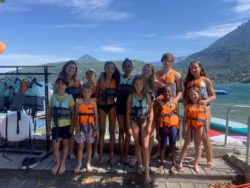 Reason 2: Unique Cultural Exposure
Reason 2: Unique Cultural Exposure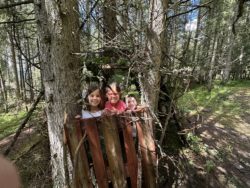 Reason 4: Fun and Safe Environment
Reason 4: Fun and Safe Environment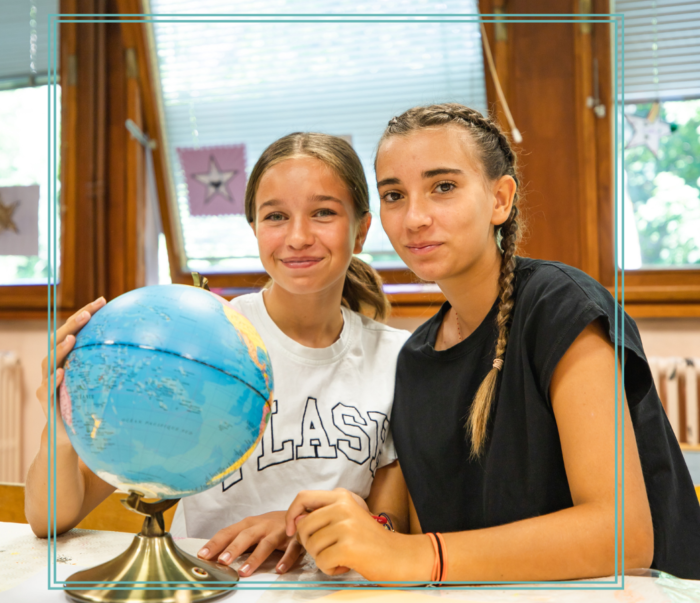
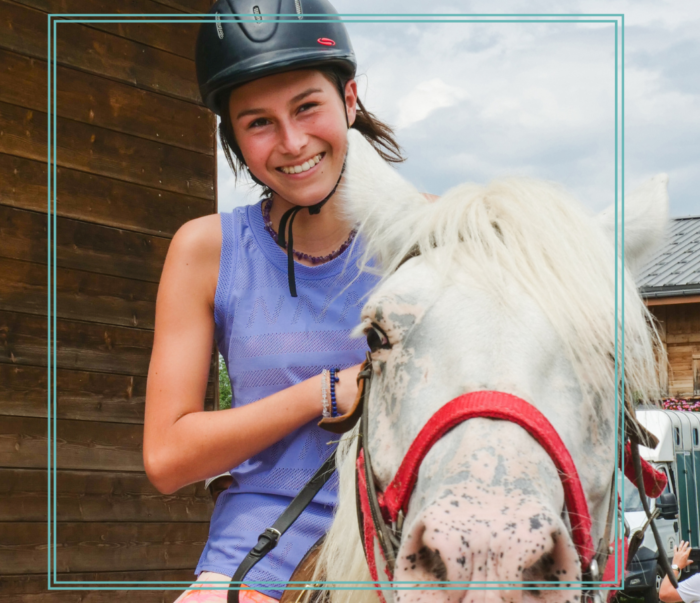
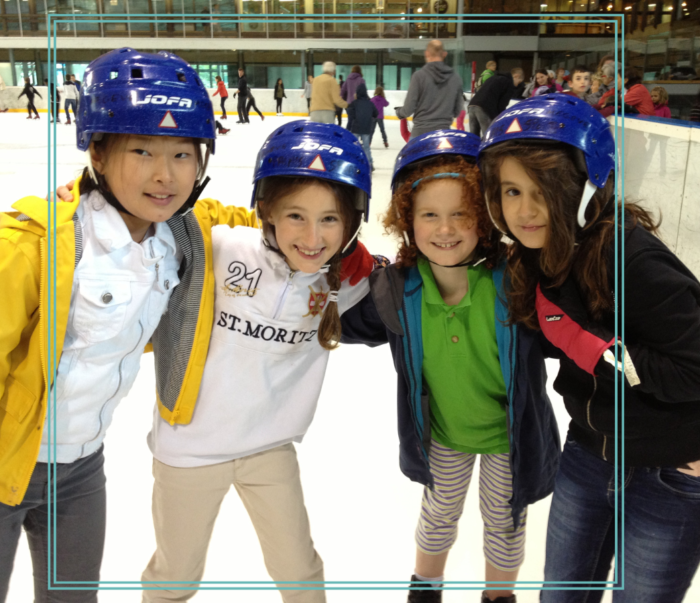
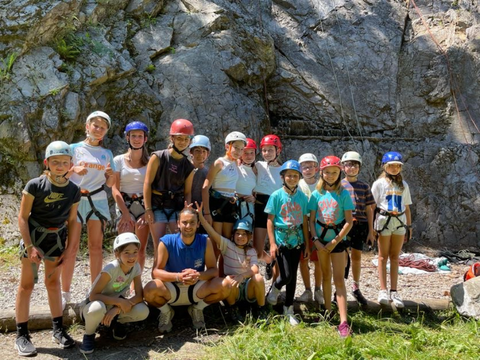
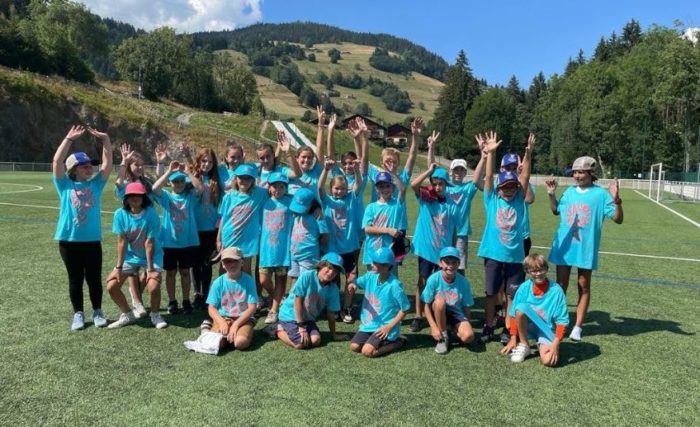

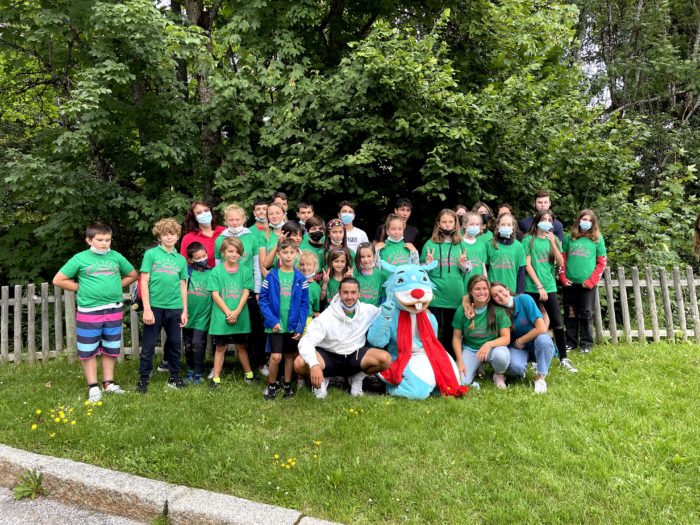
 It is a common question that is not voiced as often as it’s felt. Going to camp for the first time can require a bit of courage, and kids can be anxious about an upcoming camp experience. If a young person were to ask, this is what we’d say:
It is a common question that is not voiced as often as it’s felt. Going to camp for the first time can require a bit of courage, and kids can be anxious about an upcoming camp experience. If a young person were to ask, this is what we’d say: